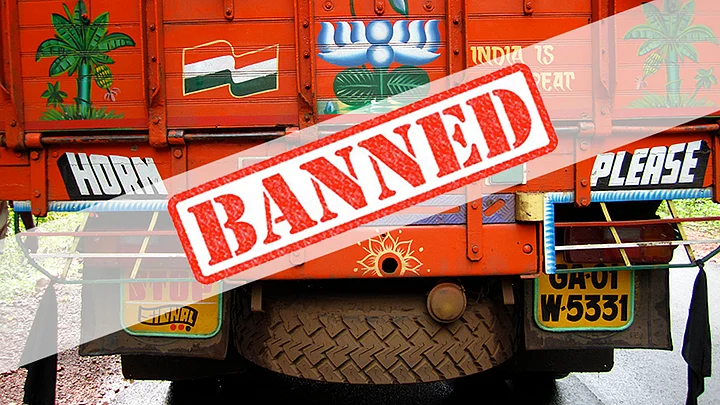This has the potential to change a little bit of history. Iconic phrases such as “Horn OK Please”, “Blow Horn” and “OK Tata Byebye”, colourfully painted on the rear side of commercial vehicles such as trucks and tempos, have been banned by the State Transport Department of Maharashtra.
The signs are an integral part of Indian commercial transport culture – so much so that they have been talked about by several foreign publications and imminent personalities. Former US president Bill Clinton even expressed his amusement at seeing these signs during his India trip in 2003.
Transport commissioner Mahesh Zagade defended the felling of history by calling the move an attempt at “cultural change”. He even issued a circular which stated that motorists honk more when they read such signs on the rear side of commercial vehicles!
According to a report in the Times of India, the transport department has claimed that they receive several complaints daily of vehicles honking excessively in silence zones near hospitals, schools and other educational institutions.
Clearly removing these comical signs is the way to go. Not imposing fines on the people who honk.
Transport Association Welcomes Ban
Surprisingly, a few transporters associations have welcomed the ban. Former president of the All India Motor Transport Congress, Bal Malkit Singh told The Times of India that the phrase was coined to allow vehicles to overtake on narrow roads.
Several years ago, roads were narrow and one really had to honk to alert the vehicle in front while overtaking. But this is not required of late. We have wider roads, four-to six-lane highways, and drivers can use lights and indicators while overtaking. There is no need to honk.
– Bal Malkit Singh
Out-stationed Vehicles Also out of Luck?
Stating that such stickers or signs are mostly seen on trucks and tempos, transport commissioner said that this rule would apply to all modes of transport, including private vehicles and even vehicles registered outside of Maharashtra.
“If trucks, tempos etc., come from outside Maharashtra, they would also have to comply with this rule to avoid issues like harassment,” a transport official told the Indian Express.
(At The Quint, we question everything. Play an active role in shaping our journalism by becoming a member today.)
